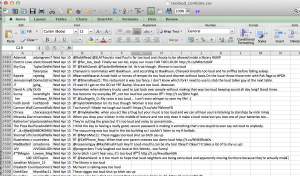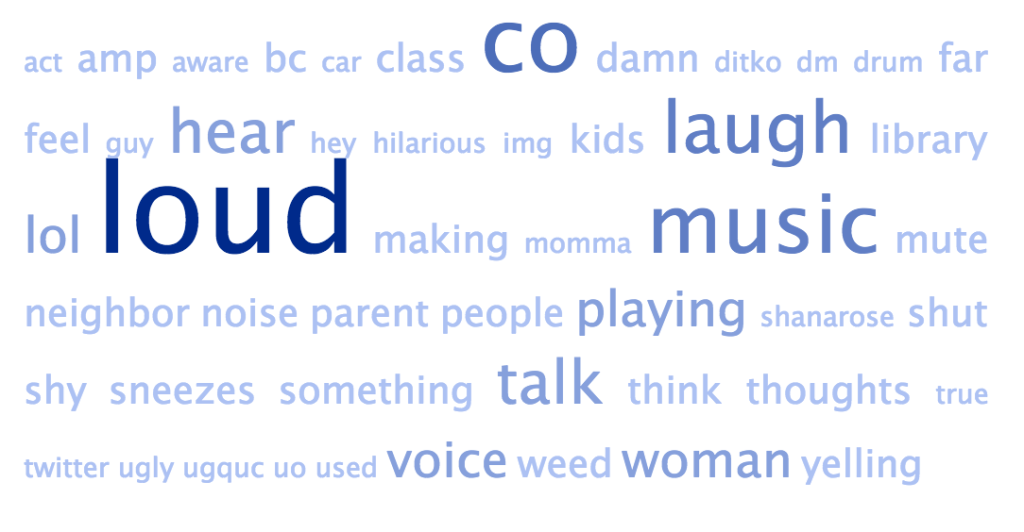Given the amount of information people make public on Twitter and other similar social media sites and apps, being able to work with the APIs those companies make public is essential.
While it may not lend itself to all data projects it can still be a tool one uses to further understand an issue and explore public opinion.
Unfortunately, the kinds of information and quality of information normally included in tweets is not the most helpful in examining the relationship between the rise in noise complaints in Austin and the rise in housing built near existing music venues. Many Twitter users do not include geographic information in their profile, nor are they always including references to their specific location in the text of their tweets. This can make it hard to narrow tweets down to  certain locales, or to associate the text in the tweets with those locations.
certain locales, or to associate the text in the tweets with those locations.
People ARE however, complaining about noise on Twitter as well as filing official complaints with police and city officials. Working with a large set, 10,000 tweets, from the past week reveals the fact that many people use social media as an outlet for their complaints about noise level in their neighborhoods. 
As you can see, the words loud and music are the two largest words in the cloud, which was seeded with a python script searching the API for the phrase, “too loud.” This tells us that nationwide, music is the first thing people reference when complaining that something is too loud.
This gives us insight into the general attitude on social media towards local music scenes and can inform our investigation of the increase in negative impressions of the music scene in Austin.